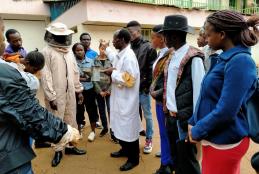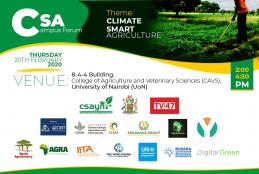DO YOU KNOW YOUR HONEY?
Apiculture is one of the valuable enterprises within agricultural sector. This industry of bee keeping support a larger population in Kenya through honey production. Bee keeping has extensive value chain ranging from cosmetics, confectioneries, pharmaceuticals, herbal products. To farmiliase on some of mentioned bee keeping aspects Third year students in Range Management on 11th March 2020 visited National beekeeping station in Lenana.
- Read more about DO YOU KNOW YOUR HONEY?
- Log in to post comments


